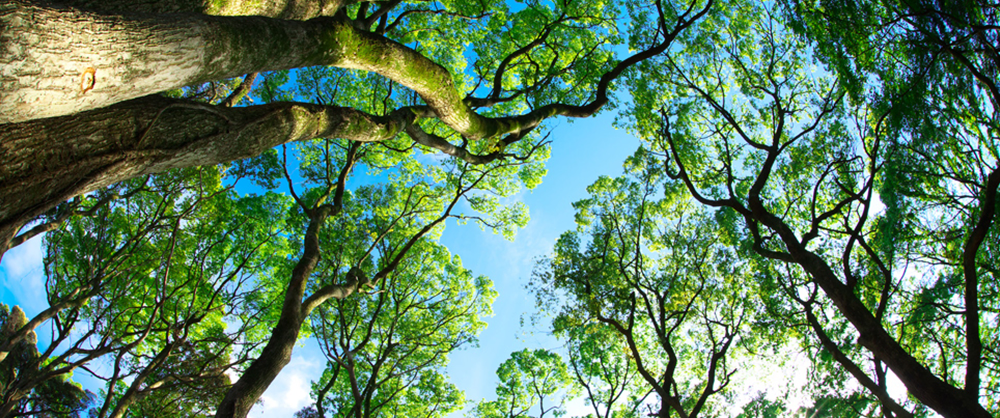
Infrastructure Engineering Global Environment
In order to harmonize development and the environment in social infrastructure and urban development projects in Japan and overseas, we conduct surveys, forecasts, and evaluations related to environmental assessments, as well as planning, research, and design related to environmental planning, conservation, and creation. Overseas, we have been engaged in research and planning, policy and institutional development, facility design, project implementation support, and human resource development and capacity building related to air and water quality improvement, forest and ecosystem conservation and restoration, and waste management.
In recent years, we have been involved in domestic and international public and private initiatives related to support for the introduction of renewable and new energy, support for the utilization of bilateral credit schemes (JCM) and voluntary credits, human rights and environmental due diligence, and biodiversity conservation, in order to solve global issues such as climate change adaptation, decarbonization, ecosystem conservation, circular economy, and sustainable society formation.

Engineering Services
The Environmental Impact Assessment (EIA) system is a mechanism to study, predict, and evaluate the environmental impact of social infrastructure projects such as road and dam projects in advance, and to implement the projects while giving due consideration to the environment. Environmental impact assessments in Japan are conducted in accordance with the Environmental Impact Assessment Law and the environmental impact assessment ordinances of local governments, while overseas ODA projects are also conducted in accordance with the environmental and social consideration guidelines of international organizations such as JICA and the World Bank. However, for long-term infrastructure projects, it is necessary to conduct environmental surveys, forecasting and evaluation, implementation of conservation measures, and follow-up. We have extensive experience in surveys, forecasts, evaluations, and conservation measures for environmental considerations for various phases of infrastructure projects not only in Japan but also in countries around the world.
Since road projects are carried out in accordance with city planning procedures, it can take more than 10 years from construction to the start of service in the longest cases. Therefore, necessary studies and examinations are conducted as needed as the project progresses. Typical examples include a review of air pollution and noise by revising the estimated future traffic volume, and a review of the Red Data Book to re-identify important flora and fauna, and to study and implement conservation measures. The implementation of these studies requires extensive knowledge and technical expertise not only in environmental impact assessment, but also in how to proceed with the project and related laws and regulations. We have a wealth of experience in environmental impact assessment follow-up, and can provide appropriate technical services according to the characteristics of your project.
In the past, many of Japan's rivers have lost their unique natural environment due to river projects for flood control, but in recent years, there have been many attempts to preserve or restore the natural environment of rivers. In preserving and creating river environments, it is important to fully understand that river environments are established under dynamic conditions, such as moving river channels and fluctuating flow conditions, and to plan accordingly.
Therefore, in addition to conducting adequate surveys of the river's fish, benthic organisms, and plants, it is also necessary to survey and evaluate the physical environment that serves as a habitat and growth base for these plants and animals, as well as to predict their future. Furthermore, in Japan, where land use has become more sophisticated, ensuring the safety of the surrounding land and the relationship between people and rivers is a prerequisite.
We will bring together technologies from many technical fields and conduct research and development, including the use of satellite imagery to identify vegetation in river channels, to achieve the various functions required of rivers at a high level.
In many cases, there are concerns about the environmental impact of large-scale urban development projects, such as traffic and building winds generated by high-rise construction projects. We have provided environmental consulting services for many large-scale urban development projects, including environmental impact assessments for the Roppongi 6-chome Redevelopment Project (Roppongi Hills) and the Sky Tree construction project. In the Tokyo metropolitan area, we have extensive experience working with the Tokyo Metropolitan Government, Minato Ward, and Kawasaki City, and we have extensive experience coordinating with the various environmental departments to support smooth project implementation.
Resident briefing sessions, which serve as a point of contact between project sponsors and residents, are also important opportunities for direct dialogue between project sponsors and residents. We can provide comprehensive services ranging from the preparation of pamphlets and other explanatory materials to the setup and operation of the venue on the day of the briefing.
However, if there is concern about the impact on rare plants and animals, such as those listed in the Red Data Book, alternative measures such as transplantation will need to be considered and implemented. Alternative measures such as transplantation of these plants and animals must minimize the uncertainty of the effects as much as possible, since the number of target populations is very limited and knowledge on transplantation and alternative measures may not be sufficient. Therefore, we formulate conservation plans for alternative measures, etc., based on a thorough understanding of the ecological characteristics of the target species to reduce the risk of transplantation associated with uncertainty and to ensure that the measures are implemented.
In the case of rare plants, we combine propagation by seeding or cuttings and transplantation experiments as necessary. In the conservation study of rare birds of prey, we provide necessary technical services based on our rich experience and know-how in technological development, such as implementation of conservation measures by installing alternative nests and introduction of remote monitoring systems using IoT.
Through collaboration between engineers in project fields such as roads and rivers, and engineers specializing in environmental impact assessments and the natural environment, we are able to quickly propose issues and countermeasures according to the stage of the project, thereby achieving both project implementation and conservation of the natural environment.
Japan has declared its goal of becoming carbon neutral by 2050, and is now accelerating its decarbonization efforts through the cooperation of not only ministries and agencies but also local governments and private businesses. In particular, local governments are increasingly working to solve regional issues such as urban development and disaster resilience through the introduction and use of renewable energy. We provide support to these local governments in their planning efforts to decarbonize their energy sources, as well as in the introduction of renewable energy, hydrogen, and storage batteries. In addition to environmental engineers, we provide technical services such as support for applications for government subsidies and accompanying support for commercialization, in collaboration with specialized energy-related engineers. For wind and solar power generation projects led by private energy companies, we provide technical services for renewable energy projects that coexist with local communities, such as conducting environmental assessments for environmental considerations and proposing, reviewing, and implementing environmental conservation measures.
To support decarbonization at the city level, we support the implementation of inter-city collaboration projects to deploy Japan's decarbonization technologies and know-how to overseas cities in cooperation with Japanese cities (local governments), utilizing our expertise in public-private networks and infrastructure development in Japan and abroad. In particular, as part of the promotion of specific decarbonization projects in overseas cities, we support the implementation of JCM facility subsidy projects by private companies. In addition, to support the decarbonization of the private sector in particular, we work with domestic and international partners to conduct surveys and support the implementation of projects related to the acquisition and creation of carbon credits with a high level of environmental integrity. The field of decarbonization is constantly evolving, and we strive to provide timely services that meet the needs of the market and our clients by constantly updating our information on the latest trends, technologies, and systems.
In many developing countries, economic development is prioritized and problems of pollution of the local environment, especially air, water, and soil pollution, have become apparent. In many cases, the pollution situation is not fully understood and countermeasures are not sufficient, and the environmental problems associated with development and the effects of environmental pollution have become major social problems. For many years, we have contributed to the improvement of urban and regional environments in developing countries by supporting the preparation of environmental management plans that include surveys and necessary countermeasures for air, water, and soil pollution in developing countries, as well as supporting the implementation of environmental management plans by relevant government agencies and the training of human resources.
In developing countries, there are still many rich forests and ecosystems (including coastal areas), but precious forest resources and ecosystems are threatened by logging associated with economic development, land conversion and illegal development due to the expansion of corporate activities and population growth. We provide services for research, planning, event implementation support, and human resource development mainly in developing countries to conserve and restore forests, conserve and improve protected areas and ecosystems, improve and enhance ecosystem services to strengthen the resilience of local communities against climate change, and reduce GHG emissions by reducing deforestation and forest degradation and conserving wetlands including coastal areas. Through these efforts, we are working to ensure that the precious forests and ecosystems that remain on Earth are passed on to future generations without compromising their quality.
Roadside trees in Japan are becoming more and more important in terms of global environmental conservation, such as CO2 reduction and landscape preservation, and road management requires more maintenance plans that balance cost, safety, and the environment.
From the perspective of green infrastructure development, we contribute to the maintenance and management of social infrastructure by preparing maintenance and management plans for these street trees, as well as by proposing and monitoring rainwater infiltration tree planting strips.
In our daily lives, we generate waste, which is collected and disposed of by local governments. In addition, local governments are also responsible for disaster waste disposal plans in the wake of the Great East Japan Earthquake and climate change-related disasters. We provide technical support to these local governments in planning waste disposal and selecting suitable sites for facilities. In recent years, we have conducted surveys to understand the actual state of marine debris, organized basic information on marine debris, and provided support for the formulation of "regional plans to promote countermeasures against coastal drifted debris". Overseas, we have also provided technical support for central and local governments in developing countries with weak waste management systems, such as formulating M/P plans, improving collection and final disposal capacity, procuring equipment and designing facilities (final disposal facilities, intermediate treatment facilities (waste to energy), recycling facilities, etc.), and designing collection vehicles, etc. We have also provided technical support for the development of diversified waste management systems, In addition, we provide support for the commercialization of waste power generation and resource recycling to address diversified issues (support for the formulation of systems related to circular economy and extended producer responsibility, measures against marine plastics, debris disposal at the time of disasters and war, etc.) and to decarbonize the world.
Since the adoption of the SDGs at the United Nations Summit in 2015, the decision-making process of investment institutions has reflected the growing global awareness of the SDGs, particularly with regard to corporate environmental, social and human rights, and governance initiatives. In July 2022, we established the Sustainability Design Office to provide sustainability consulting services using the "KIBOH2030" tool to assess the SDGs initiatives of small and medium-sized companies. We have also developed "TSUMUGI@" as a tool for evaluating the SDG initiatives of local governments to visualize the SDG initiatives of local governments. Overseas, as part of our support for sustainable corporate activities, we also provide services related to human rights due diligence for private companies entering the private sector and support for decarbonization. In this way, we provide sustainability consulting services that leverage our expertise in the natural and social environment.


